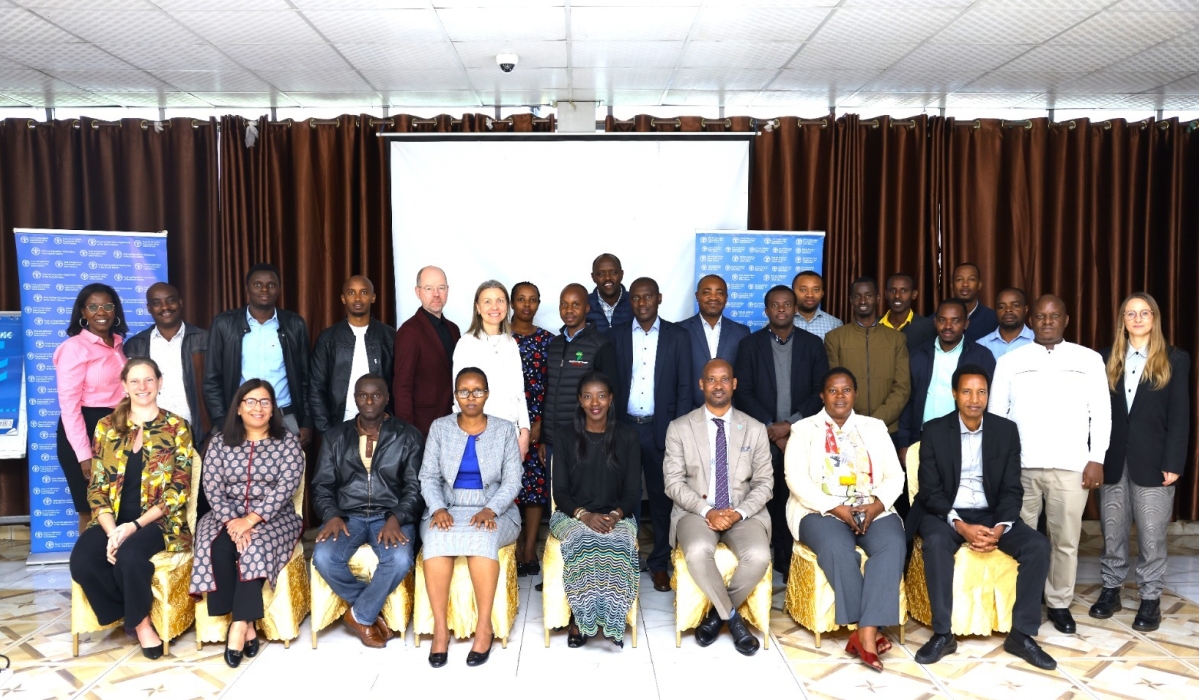In a significant collaborative effort, the Ministry of Agriculture and Animal Resources (MINAGRI) and the Food and Agriculture Organization of the United Nations (FAO) have officially initiated the first training session of the PSTA 5 “Rwanda Agriculture and Food Systems – Policy Learning Programme” (PLP).
This groundbreaking 10-month program aims to integrate food system development into actions, policies, and investments, reflecting a commitment to advancing sustainable agriculture and food systems.
Read also: Nigerians to discuss agriculture, crowdfunding at 6th Investment Summit
Thematic Areas for Holistic Development
The launch builds on the momentum generated by the recent Knowledge Seminar of the 5th Rwanda Strategic Plan for Agriculture Transformation (PSTA 5), officiated by the Minister of Agriculture, Dr. Ildephonse Musafiri. The PLP will delve into six thematic areas crucial for comprehensive development:
Food Systems, Nutrition, and Healthy Diet: Understanding the dynamics of food systems, nutrition, and fostering healthy diets.
Trade: Exploring the intersection of agriculture and trade for mutual benefit and economic growth.
Political Economy Approaches to Governance: Applying political economy perspectives to governance for effective policy implementation.
Climate-Resilient Food Systems: Addressing the impact of climate change on food systems and implementing resilience measures.
Public-Private Partnerships for Research and Innovation: Fostering collaboration between the public and private sectors for innovative research in agriculture.
The Policy Learning Programme, scheduled to run for 10 months, is designed as a series of one-week sessions, each dedicated to one of the thematic areas. The inaugural session, focusing on Food Systems, commenced on November 27 in Musanze. This collaborative effort involves the Institute for Innovation and Public Policy, University College of London, bringing their expertise to bear on innovative policy design using systems approaches.
Equipping Experts for Systems Thinking
The PLP brings together a cohort of 30 senior and technical experts from various government departments, reflecting a commitment to cross-sectoral collaboration. Participants include representatives from MINAGRI, Rwanda Agriculture and Animal Resource Board (RAB), National Agricultural Export Development Board (NAEB), Ministries of Trade and Industries, Environment, Youth, Finances, as well as the National Bank of Rwanda (BNR).
Dr. Chantal Ingabire, Director General of Planning for the Ministry of Agriculture and Animal Resources, emphasized the PLP’s objective, stating, “The PSTA 5 Policy Learning Programme aims at ensuring that policies set the right conditions for investments in agriculture and food systems to have a real impact on our economy.” She underscored the need for a systemic approach, acknowledging that a single actor or technology can’t provide all the solutions needed for sustainable agriculture.
Coumba Sow, FAO Country Representative in Rwanda, emphasized the importance of the applied learning program, stating, “This long week session on ‘Systems approach for food and agriculture in Rwanda’ will ensure the adequacy of the capacities of policymakers and help public sector staff from various sectors better understand the concept of agriculture linked to food systems and complex challenges.”
Towards a Sustainable Future
Rwanda has made remarkable progress in its agricultural sector, aligning with sustainable development goals. The government’s bottom-up approach has played a pivotal role in transformation efforts. However, challenges persist, ranging from climate change to food loss and waste, malnutrition, and food insecurity. Coumba Sow emphasised the urgency of a paradigm shift, stating that traditional approaches to agriculture are no longer sufficient.
As Rwanda navigates post-COVID conditions, economic factors, and global conflicts, the Policy Learning Programme signals a proactive step towards a resilient and sustainable future for the nation’s agrifood systems. By fostering systems thinking, collaboration, and innovation, this initiative aims to address the complex challenges facing agriculture, paving the way for a more sustainable and inclusive food future for Rwanda.




